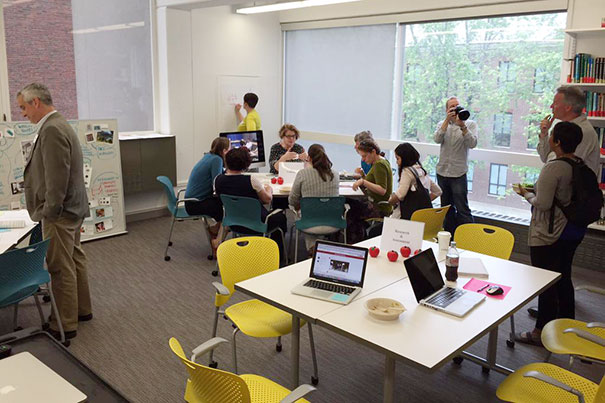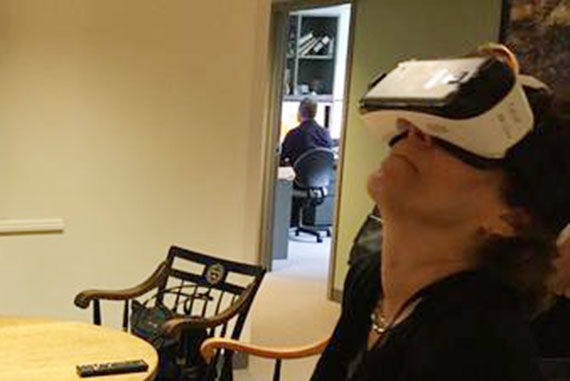
Dustin Tingley, the recently appointed faculty director of the VPAL Research Group, sees the “indication of success as the number of times we can say we are partnering with or empowering another group,” such as the Bok Center for Teaching and Learning (above).
Image courtesy of VPAL
Learning about learning: Creating a connection
Integrated HarvardX and HILT research effort will probe residential and online learning, and the places in between
Peter Bol, Harvard’s vice provost for advances in learning (VPAL), announced Thursday the formation of the VPAL Research Group. The organization will integrate HarvardX and the research fellows’ programs from the Harvard Initiative for Learning and Teaching (HILT), and adds new leadership and positions.
“This fusion to support our growing work in the learning sciences is absolutely additive,” said Bol, Charles H. Carswell Professor of East Asian Languages and Civilizations, who has served in the vice provost role for two years. “Moreover, research is following our faculty, as what is happening online and in the classroom is increasingly blurred, and researchers have already been skating across both realms. In that sense, it’s a reflection of a reality that has already existed over the past few years.”
The VPAL Research Group will be dedicated to advancing Harvard’s research on assessing and improving residential, blended, and digital learning environments.

“Grounded by HarvardX’s benchmark studies on MOOC [massive open online course] learners and HILT’s ongoing efforts to convene faculty and build a teaching and learning network across campus, we are working from a position of strength,” said Dustin Tingley, Paul Sack Associate Professor of Political Economy, who will assume the faculty directorship of the new VPAL research team. “Looking ahead, our charge is to enable faculty research as well as develop new opportunities for research that come out of Harvard’s investment in technologies like the new Canvas platform.”
Tingley is also the director of graduate studies for the Harvard Government Department, faculty director of the Institute for Quantitative Social Science’s Undergraduate Research Scholar program, and founding director of the Program on Experience Based Learning in the Social Sciences, which created and helps maintain ABLConnect, a resource for activity-based and active learning.
Andrew Ho, professor at the Harvard Graduate School of Education, who has simultaneously served as chair of the HarvardX Research Committee and directed on an interim basis the efforts of the HarvardX research team, will become the chair of the VPAL Research Committee.
The committee supporting and advising Ho and Tingley will be composed of faculty members from across Harvard, many of whom have previously served as advisers to the prior HarvardX research group. Designed around topic subgroups to help define and advance particular priorities, the committee will tackle adaptive learning; hybrid classrooms; and the use, sharing, and privacy of learning data, among other issues, while also fostering cutting-edge research.
“Our aim remains steadfast: supporting the charge by our faculty to improve teaching and exploring the emerging, constantly changing state of what Provost Alan Garber calls ‘anywhere, anytime learning,’ ” said Bol. “I am very much in line with a growing sentiment of the learning sciences research community. Every learning experience offers a potential opportunity for experimentation and analysis — and progress.”




